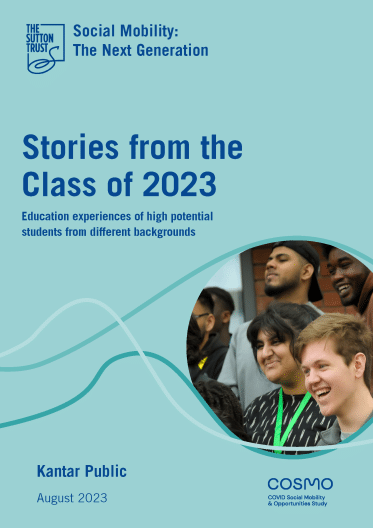Prior attainment is a major factor in both educational and career progression, but even young people who do show strong initial academic potential from less advantaged backgrounds often fall behind their better-off peers during their time in education.
Indeed, the first piece in our Social Mobility: The Next Generation series found that by GCSE, disadvantaged high attainers (those eligible for free school meals in secondary school and in the top third for attainment at the end of primary school), are achieving grades that are on average more than three quarters of a grade lower per subject than students with the same ability from better off backgrounds.
This report, the second in the series, looks to tell the stories behind those statistics. Using in-depth interviews with young people from the COSMO Study, it examines in greater detail the lives of young people with potential but from different socio-economic backgrounds, to better understand the ways in which their experiences differ, and where they have faced common challenges.
